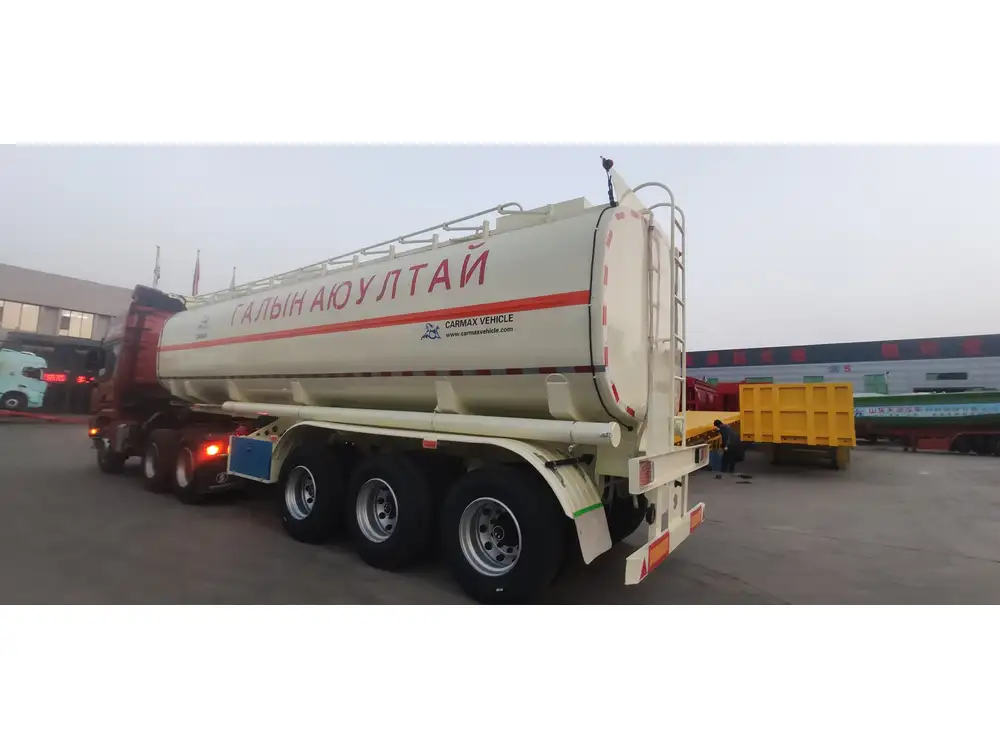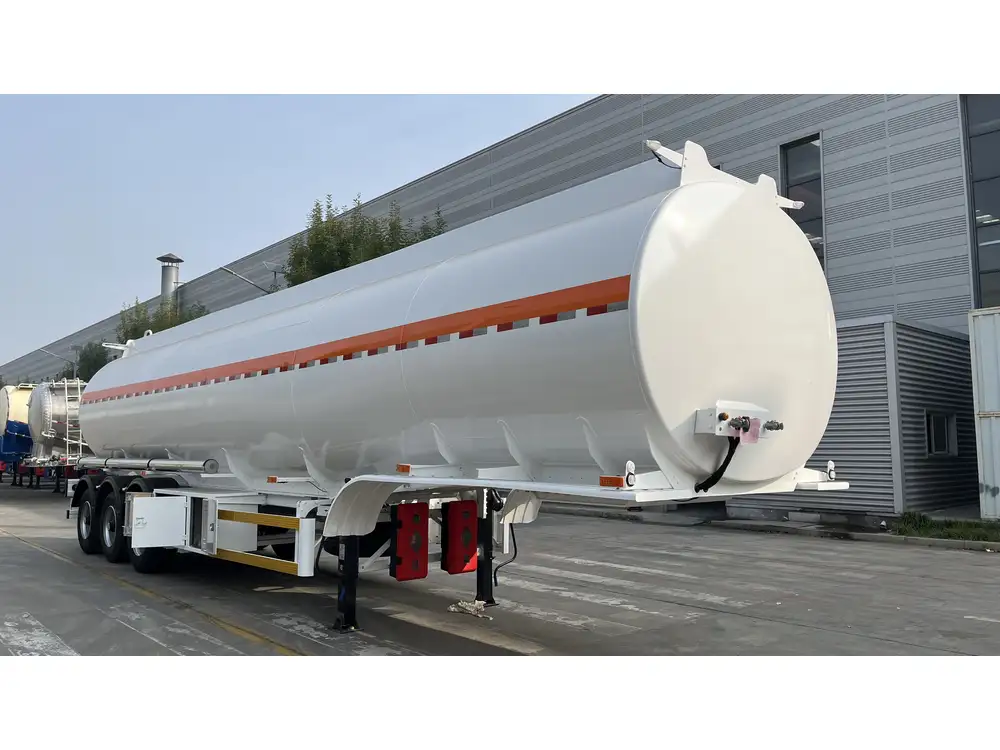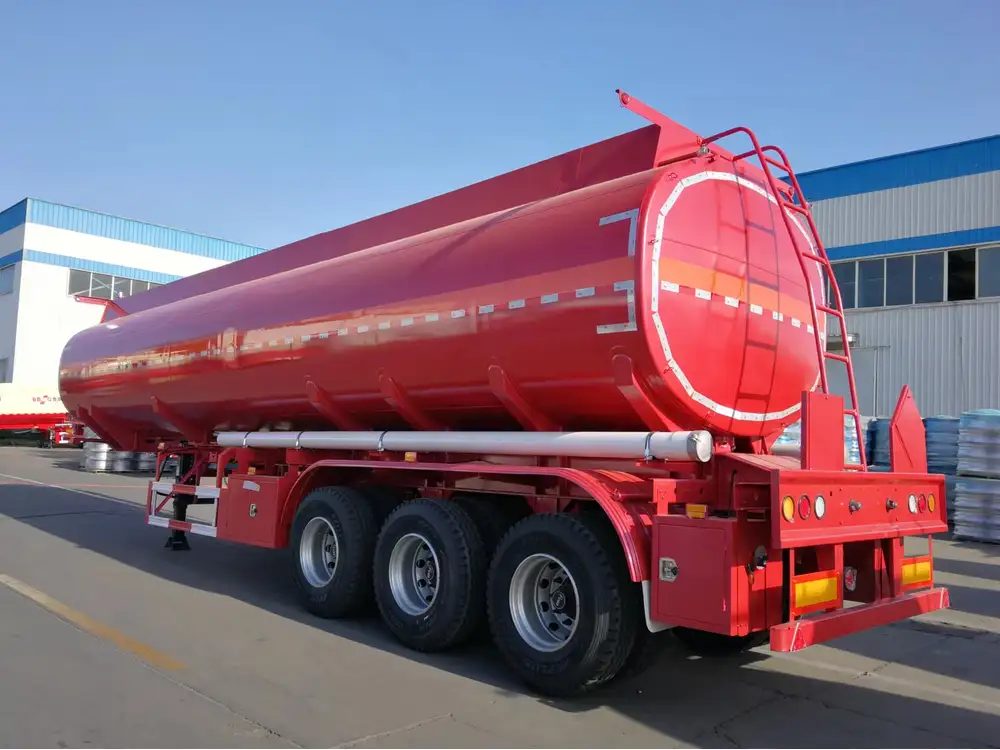When it comes to the efficient operation and longevity of your dump trailer, one crucial factor comes into play: hydraulic oil. Choosing the right hydraulic oil is not merely a matter of convenience but a significant decision that can affect the performance and durability of your trailer’s hydraulic system. This guide will delve deeper into the types of hydraulic oils available, their specifications, and the factors you must consider to make an informed decision.
Understanding Hydraulic Systems in Dump Trailers
Before we discuss hydraulic oil specifically, it is imperative to grasp how hydraulic systems function in dump trailers. These systems use hydraulic fluid as a medium to transfer force and energy. Upon engaging the trailer’s hydraulic pump, the fluid travels through hydraulic lines, activating the dump mechanism that raises or lowers the bed. This powerful and efficient mechanism relies heavily on the quality and properties of the hydraulic oil being used.
Key Components of Hydraulic Systems
| Component | Function |
|---|---|
| Hydraulic Pump | Converts mechanical energy into hydraulic energy. |
| Hydraulic Fluid | Transfers force throughout the system. |
| Hydraulic Cylinder | Executes the lifting motion of the dump bed. |
| Control Valves | Regulate the flow of hydraulic fluid. |
| Hydraulic Lines | Transport hydraulic fluid between components. |

Types of Hydraulic Oil for Dump Trailers
Choosing the right hydraulic oil from a myriad of options can indeed be confusing. Here, we will categorize the types of hydraulic oils based on various attributes, such as viscosity, additives, and base oil types.
1. Mineral-Based Hydraulic Oils
Mineral oils are the most common type of hydraulic fluid, derived from refining crude oil. They typically contain additives that improve performance features:
- Anti-Wear Additives: Essential for protecting components from wear and tear.
- Oxidation Inhibitors: Prevents the oil from degrading over time, ensuring it retains its properties.
- Foam Inhibitors: Reduces foam in the system, which can impede hydraulic pump functions.
Viscosity Grades: Hydraulic oils are measured in ISO viscosity grades. Common grades for dump trailers include ISO 32, ISO 46, and ISO 68.
2. Biodegradable Hydraulic Oils
As environmental consciousness rises, biodegradable hydraulic oils have gained popularity. These oils break down naturally over time, minimizing environmental impact in the event of leaks.
- Natural Esters: Derived from vegetable oils, offering a renewable alternative.
- Synthetic Esters: Engineered for superior performance but more expensive.

3. Synthetic Hydraulic Oils
Synthetic oils are engineered fluids that provide superior performance compared to mineral or biodegradable oils. They are designed for extreme conditions and provide:
- High Thermal Stability: Maintains performance at varying temperatures.
- Excellent Lubrication: Reduces wear significantly, prolonging the lifespan of hydraulic components.
4. Water-Based Hydraulic Fluids
These fluids can significantly reduce fire risks and can be great for specific applications. However, they are less common in dump trailers due to compatibility issues with certain components.
Viscosity Considerations for Hydraulic Oil
Viscosity is arguably the most critical property of hydraulic oil. It reflects the fluid’s resistance to flow, impacting how well it conveys power through the hydraulic system.
Choosing the Right Viscosity:
- Cool Temperatures: Use lower viscosity oil (ISO 32) for cold climates to ensure easy pump operation.
- Warm Temperatures: In warmer conditions, higher viscosity (ISO 68) ensures stability and effective lubrication.

Performance and Temperature Characteristics
| Viscosity Grade | Temperature Range | Best Use |
|---|---|---|
| ISO 32 | -10°C to 40°C | Cold weather applications |
| ISO 46 | -5°C to 50°C | General purpose |
| ISO 68 | 0°C to 60°C | Warm weather applications |
Understanding Additives in Hydraulic Oils
Hydraulic oil is rarely just a standalone product; it usually comprises various additives to enhance its performance. Understanding these additives can help you choose the right oil for your dump trailer.
Essential Additives
- Anti-Wear Agents: Protects surfaces in high-friction areas, reducing wear and extending service life.
- Corrosion Inhibitors: Protects metal surfaces from rust and oxidation.
- Foam Stabilizers: Minimizes foam, ensuring system efficiency.
- Detergents and Dispersants: Keep the oil clean by removing contaminants that can accumulate over time.

Common Issues Related to Hydraulic Oil
Despite careful selection of hydraulic oil, various issues can still arise. Understanding these problems can help you preemptively address them:
1. Contamination
- Cause: Dust, dirt, or water entering the hydraulic system can degrade oil quality.
- Solution: Install quality filters and routinely check oil levels.
2. Low Oil Levels
- Cause: Leaks or insufficient replenishment can lead to overheating and equipment failure.
- Solution: Regularly check fluid levels and inspect for leaks.

3. Thermal Degradation
- Cause: Excessive heat can lead to oil breaking down, losing its efficacy.
- Solution: Monitor operating temperatures and ensure the cooling system is functional.
4. Poor Oil Quality
- Cause: Using low-quality or incorrect oil can impair performance.
- Solution: Stick to recommended oil specs and regularly change fluid as per manufacturer guidelines.
Selecting the Right Hydraulic Oil for Your Dump Trailer
Here are a slew of factors to consider when making your choice:
Manufacturer’s Recommendation: Always refer to your dump trailer’s manual for specific recommendations on hydraulic oil types and viscosity grades.
Operating Conditions: Assess your typical operating conditions, including temperature ranges and load variances, to select suitable oil.
Environmental Impact: If you operate in eco-sensitive areas, consider biodegradable options.
Cost Vs. Quality: While cheaper oils may seem appealing, investing in high-quality hydraulic fluids can save you on repairs and maintenance in the long run.

Hydraulic Oil Maintenance Tips
To ensure longevity and optimal performance, the following maintenance tips can be invaluable:
- Regular Fluid Checks: Monitor fluid levels and quality consistently.
- Change Schedule: Create a regular oil change schedule based on the manufacturer’s guidelines.
- Filter Replacement: Change hydraulic filters at specified intervals to prevent contamination.
- Inspection of Components: Regularly inspect hydraulic cylinders, hoses, and seals for wear and damage.
Conclusion: The Right Hydraulic Oil Matters
In summary, selecting the appropriate hydraulic oil for your dump trailer is vital for its functionality, efficiency, and longevity. From mineral-based to biodegradable and synthetic oils, each variant has unique properties that cater to different operational needs. By understanding viscosity, additives, and maintenance best practices, you can make informed decisions that ensure your dump trailer functions optimally throughout its lifespan. The right hydraulic oil not only supports the mechanical aspects of your trailer but ultimately reflects on your operational efficiency and bottom line. Investing the time to choose and maintain the right hydraulic oil will reward you with a reliable and effective dump trailer for years to come.



